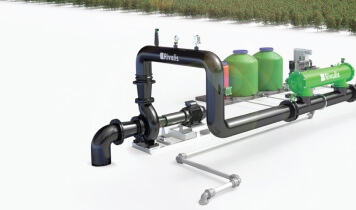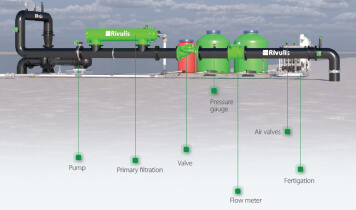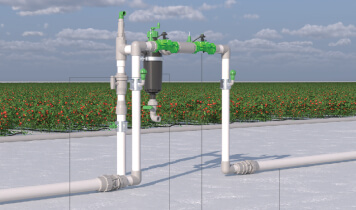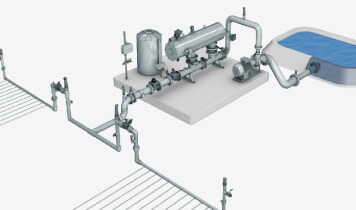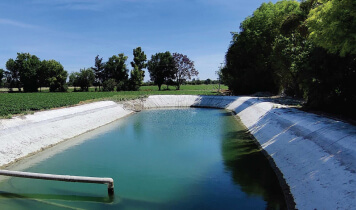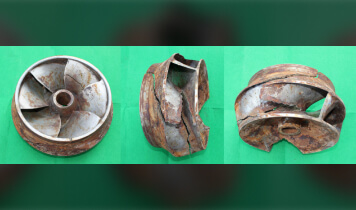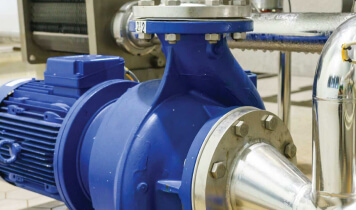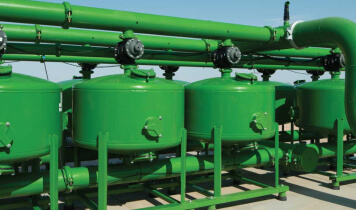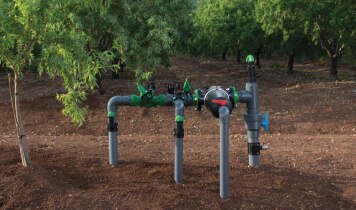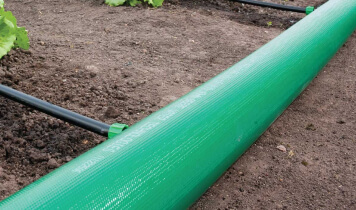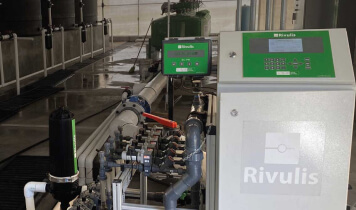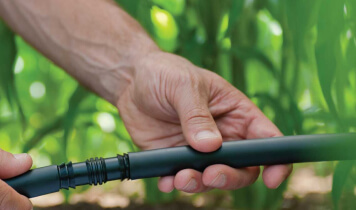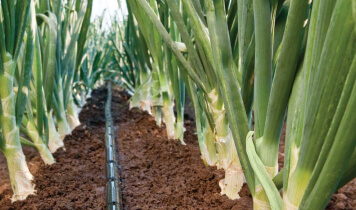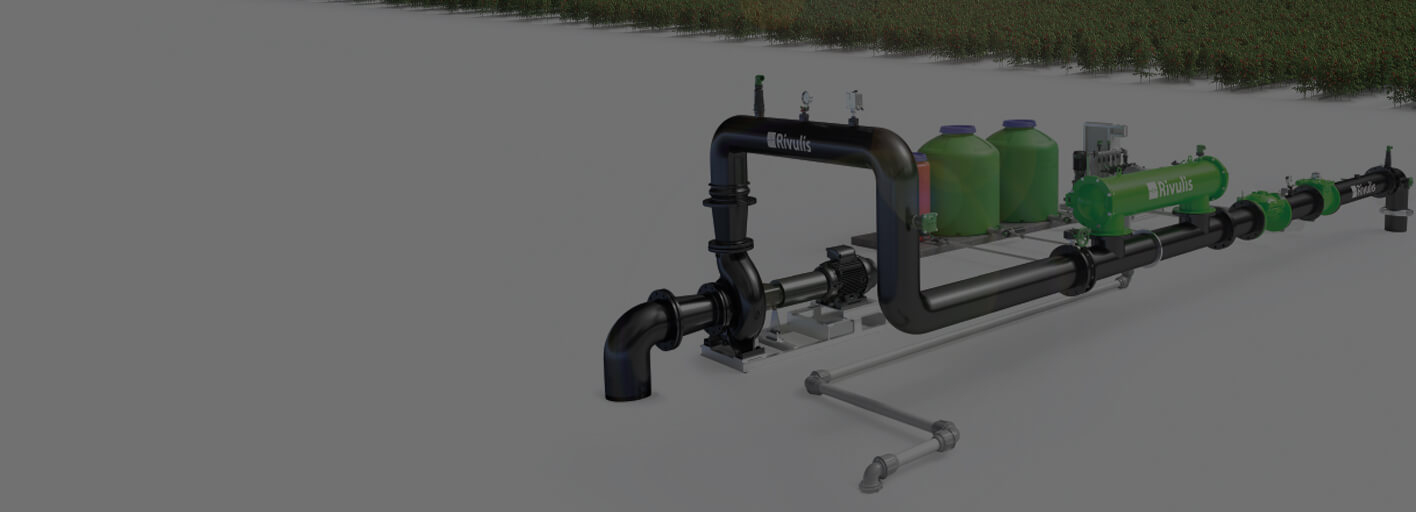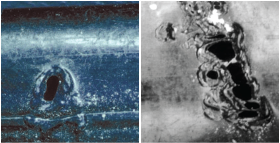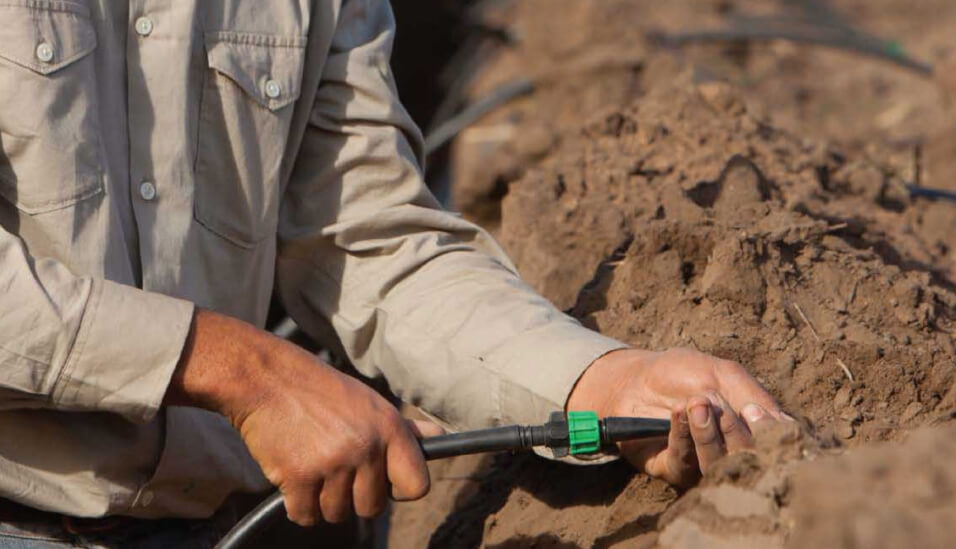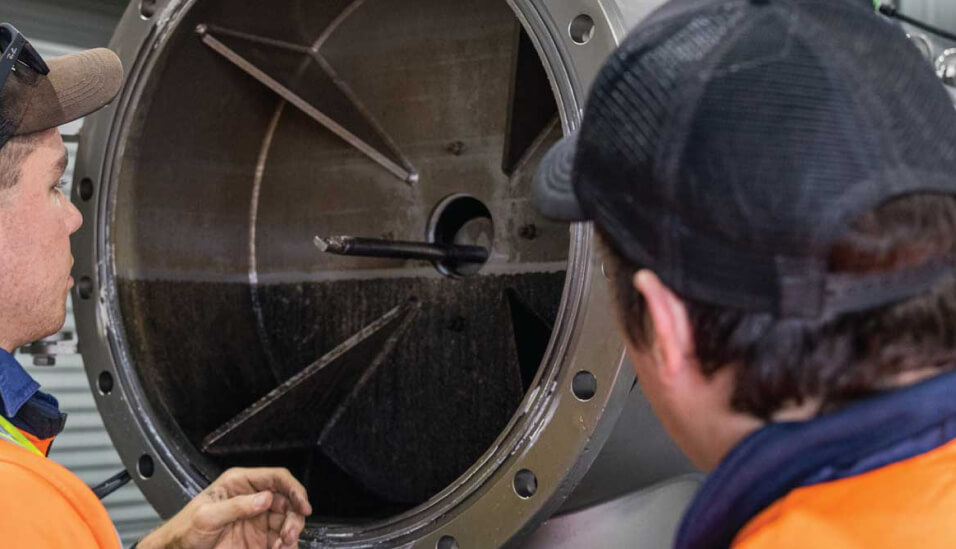The seasonal/multi-season system
In this application, drip line/tape is used for only one season (single season) or a couple of seasons (multi-season). Most applications are single season where, at the conclusion of the season, the drip line/tape is retrieved for recycling.
Single season application is often used for crops where the production value is very high compared to most other crops. The single use ensures that new drip laterals are installed each season. The cost of the new drip lateral is a minor cost compared to the value of crop that is lost if there is a failed dripper.
As crops grown can change, single season use enables you to select the right drip lateral each season for the specific crop. It also uses less labor than a “multi-season” system, as retrieval and reinstall requires more care in retrieval, along with splicing and storage.
In single season applications, the laterals are often installed at the same time as plants and plastic mulch (where used). The drip laterals are generally expensed each season, in a similar way that fertilizer and chemicals are expensed.
A seasonal system allows for fast setup, and portable systems where land is leased. Additional flexibility can be achieved when used in conjunction with a mobile system using Rivulis filters (see picture on right).


It is common to shallow bury the laterals or to install under plastic mulch. This is not to be confused with subsurface drip irrigation, which is buried at 20+ cm (8+ in).
The next page contains is a summary of pros and cons for laying drip laterals on the surface compared to light burial or use under plastic mulch.
Below is a summary of pros and cons for laying drip laterals on the surface compared to light burial or use under plastic mulch.
| Surface | |
|---|---|
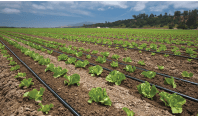 |
|
|
Pros |
• Easy to see problems |
| Cons |
• Temperature changes can cause snaking • Wind can blow the drip lateral • Easier to damage • Less efficient (smaller wetted profile, higher evaporation, higher run off) • More weed growth |
| Light burial, including light burial under plastic mulch | |
|---|---|
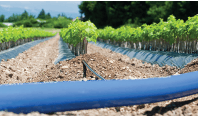 |
|
|
Pros |
• Water moves further laterally Specific additional advantages of plastic mulch: |
| Cons | • Leaks are difficult to detect • Repairs are more difficult • More difficult to remove • Additional cost of the plastic mulch |
| Surface | |
|---|---|
 |
|
|
Pros |
• Easy to see problems |
| Cons |
• Temperature changes can cause snaking |
| Light burial, including light burial under plastic mulch | |
|---|---|
 |
|
|
Pros |
• Water moves further laterally Specific additional advantages of plastic mulch: |
| Cons |
• Leaks are difficult to detect |
Important: If using transparent plastic mulch, the lateral must be slightly buried. Water droplets can form on the plastic mulch, which in turn create a magnifying glass effect that can burn the drip lateral.


